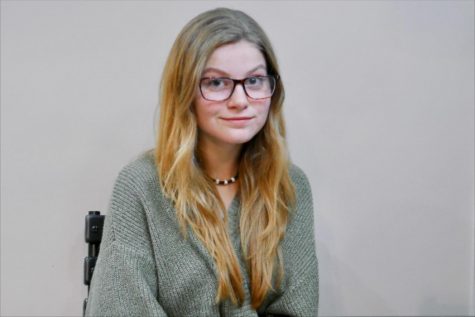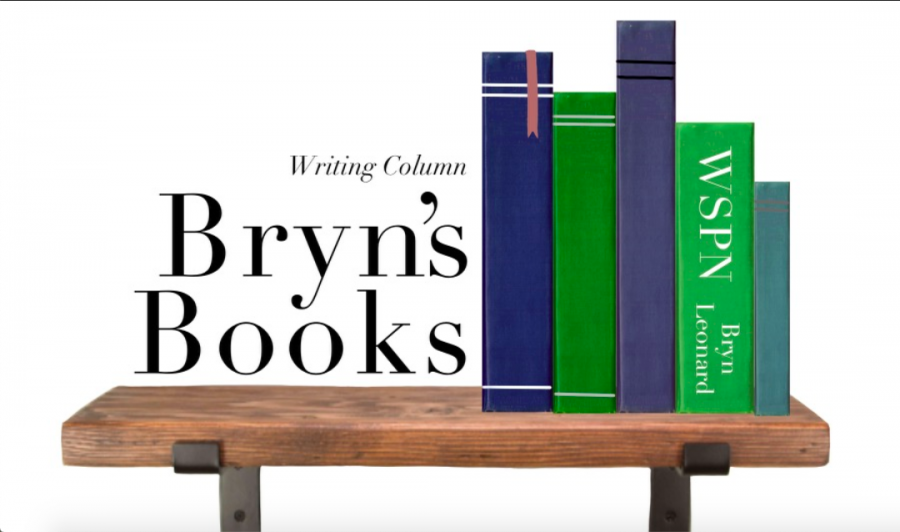Bryn’s Books: “Educated”
Credit: Elizabeth Zhong
In the latest installment of “Bryn’s Books,” junior guest writer Bryn Leonard reviews “Educated” and details the most prominent factors of the memoir.
I am a fan of memoirs because I love reading about other people’s stories, especially those that are vastly different compared to my own life. In Tara Westover’s first-ever book, “Educated,” Westover enables the reader to embark on an emotional journey as she shares snapshots and moments of her eccentric childhood, through the bad and the good.
Westover grew up in a survivalist Mormon family in rural Idaho. Her father, Gene (pseudonym), owned a metal scrapyard, where Westover’s six older siblings worked. Her mother, Faye (pseudonym), was an unlicensed midwife for low-income families in the area. For the most part, Westover and her siblings did not receive public education, and some did not even have a birth certificate. Gene and Faye did not believe in medical care either. All injuries, including severe wounds and head traumas, were treated at home with Faye’s herbs. As a kid, Westover suffered physical and emotional abuse from her older brother Shawn (pseudonym). The rest of her family neither intervened nor acknowledged the abuse Westover was facing.
Westover’s vivid descriptions of the Idaho mountains where she grew up elucidated the rural lifestyle that confined her from the outside world. Her exploration of identity and desire to go to college contradicted her family’s morals and values since they see public education as a brainwashing tactic from the government. As a result, she faces a multitude of hurdles, such as passing the ACT with little education, paying for her tuition and letting go of her past life in the mountains.
As we all know, memories are faulty and inaccurate. However, Westover is honest about how her retellings of stories may not be entirely correct, and instead she gives multiple retellings from her other family members who remembered the events differently, which shows the integrity in her writing.
My only aversion to this story is the absence of critical facts. A few of the dots in the story didn’t connect, and there were multiple plot holes in the memoir. For example, Westover describes countless tragedies such as car and machinery accidents that left family members on the verge of death. Yet, they always managed to survive with no proper medical care. Also, I was confused about how Westover was able to go to college with no formal education. Westover also did not explain how her family could afford certain things, such as the fancy machinery in their scrapyard. The missing details made the story ambiguous and a bit disconnected.
Overall, memoirs are an essential genre for everyone to read and study. Having an intimate glimpse into someone’s life, especially one that is so vastly different from our own, helps us become well-rounded and aware of the experiences of others. “Educated” helped me reflect on how privileged I am to have access to formal education and to have parents who support me. I highly recommend this memoir to everyone.
Bryn’s rating: 4/5
Your donation will support the student journalists of Wayland High School. Your contribution will allow us to purchase equipment, cover our annual website hosting costs and sponsor admission and traveling costs for the annual JEA journalism convention.

Bryn Leonard, class of 2023, is a guest writer for WSPN and writes for her column, "Bryn's Books." In her free time, she enjoys skiing, horseback riding...

Elizabeth Zhong, Class of 2021, is this year’s graphic designer for WSPN. She is the president of Student Council, co-President of the Tri-M Music Honor...





![Last Wednesday, the Wayland School Committee gathered to discuss a number of topics regarding the health curriculum and Innovation Career Pathway course. Another large topic of conversation was the ways to potentially mitigate distracting cell phone usage. "These [phones] are going to distract your learning and social relationships," Superintendent David Fleishman said. "That's concrete right there."](https://waylandstudentpress.com/wp-content/uploads/2025/06/Screenshot-2025-06-04-at-9.49.31 PM-1200x886.png)



























![Troy Hoyt finishes the Boston Marathon, running for the Hoyt Foundation. T. Hoyt is the son of Hoyt Foundation CEO Russ Hoyt.
“[Running a marathon] might seem like a big thing, when it’s presented to you at first, but if you break it up and just keep telling yourself, “Yes, you can,” you can start chipping away at it. And before you know it, you’ll be running the whole 26 miles, and you won’t even think twice about it.” T. Hoyt said.](https://waylandstudentpress.com/wp-content/uploads/2025/04/C36E8761-1CBB-452E-9DF2-543EF7B1095E_1_105_c.jpeg)











































